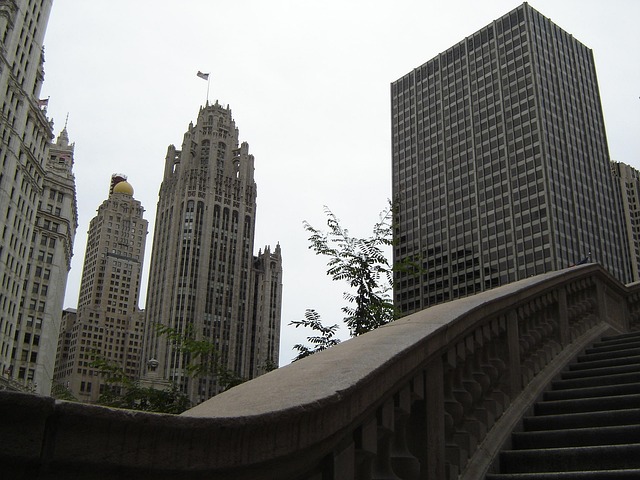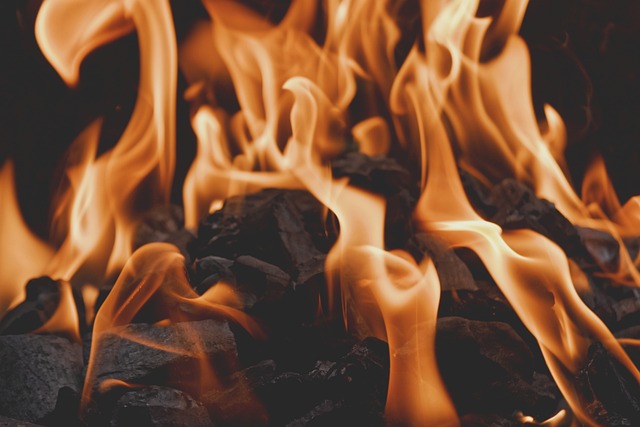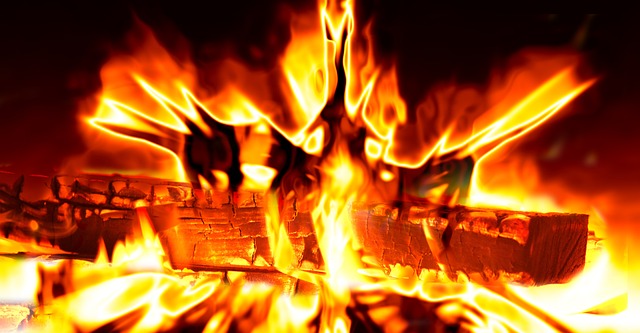Selling a fire-damaged home in Chicago involves navigating unique challenges, from structural inspections to legal protections and marketing strategies. Buyers and sellers must understand the local market dynamics, with buyers conducting thorough inspections and sellers providing transparent disclosures. The process requires adherence to Illinois' stringent legal framework, accurate property assessments, and strategic marketing to attract interested buyers. Specializing agents can guide homeowners through pricing, repairs, and marketing to successfully sell fire-damaged properties in Chicago's competitive market.
“In the competitive Chicago real estate market, understanding as-is home sales is crucial for both buyers and sellers navigating unique challenges. This comprehensive guide dives into the intricacies of selling fire-damaged properties in Chicago, providing insights on assessment, legal considerations, marketing strategies, and success stories. Whether you’re a buyer seeking opportunities or a seller looking to maximize value, this article offers valuable information to help you navigate as-is sales effectively.”
- Understanding As-Is Home Sales: A Comprehensive Guide
- The Chicago Market: Unique Challenges and Opportunities
- Fire Damage Assessment: What Buyers and Sellers Need to Know
- Legal Considerations: Contracts and Disclosures in Illinois
- Marketing Your Fire-Damaged Property Effectively
- Success Stories: Navigating As-Is Sales in Chicago
Understanding As-Is Home Sales: A Comprehensive Guide

As-is home sales in Chicago refer to the direct sale of a property in its current state, without any repairs or improvements by the seller. This type of transaction is particularly common for selling fire damaged homes in Chicago, where homeowners may face financial constraints or time pressures that prevent them from rehabilitating their properties before listing them on the market. Understanding as-is sales involves grasping several key aspects:
First, buyers who purchase these homes typically conduct thorough inspections to assess any damage, including structural issues, water damage, and fire restoration needs. This process differs significantly from traditional real estate transactions where sellers are often required to make repairs prior to closing. Second, as-is sales can offer significant savings for buyers who are willing to take on the burden of repair themselves after purchasing the property. Third, these sales also provide an opportunity for investors looking to buy, renovate, and resell or rent at a later date. Lastly, it’s crucial for both parties to have clear legal protections in place to avoid potential disputes related to undisclosed damage or hidden costs.
The Chicago Market: Unique Challenges and Opportunities

The Chicago real estate market presents a unique blend of challenges and opportunities for both buyers and sellers. One distinct aspect is the prevalence of selling fire-damaged homes, which requires specialized handling due to the potential emotional and financial weight on owners. Fire damage can leave visible scars and hidden issues, impacting the property’s value and appeal. However, this also presents an opportunity for those seeking a bargain or a renovation project. Buyers who understand the market’s nuances can find attractive prices and the chance to create their dream homes from scratch.
Despite these unique dynamics, Chicago’s robust economy, vibrant culture, and strong community spirit make it an appealing location. The city’s diverse neighborhoods offer a range of living experiences, from historic bungalows to modern high-rises. This diversity attracts a wide array of buyers, including young professionals, families, and investors. For sellers, understanding the local market dynamics and working with experienced agents who can navigate these challenges is key to successful as-is home sales in Chicago.
Fire Damage Assessment: What Buyers and Sellers Need to Know

When considering a selling a fire-damaged home in Chicago, understanding the process of fire damage assessment is paramount. This involves a thorough inspection to determine the extent of the damage, both visible and hidden. Professionals consider factors like structural integrity, potential hazards, and the cost of repairs versus replacement. The goal is to accurately value the property post-fire, ensuring fair transactions for both buyers and sellers.
For buyers, purchasing a fire-damaged home requires diligence. It’s crucial to hire certified inspectors who can assess hidden damage and potential health risks. Knowing the history of the property, including the cause and extent of the fire, is essential in making an informed decision. Sellers, on the other hand, should disclose all relevant information about the fire and any ongoing repairs to maintain transparency throughout the selling process.
Legal Considerations: Contracts and Disclosures in Illinois

When considering a sale of a fire-damaged home in Chicago, understanding legal considerations is paramount. In Illinois, both federal and state laws govern real estate transactions, with a strong emphasis on consumer protection. Before putting your property on the market, ensure all necessary disclosures are made clearly and accurately. This includes revealing any known structural issues, environmental hazards, or past water damage, as failing to do so could lead to legal repercussions.
Contracts play a crucial role in these sales. In Illinois, real estate contracts must adhere to specific legal language and requirements. Sellers are typically responsible for providing buyers with a Property Disclosure Report detailing the condition of the property. For fire-damaged homes, this may include information about repairs needed, remediation efforts, and any potential health or safety risks. Buyers should thoroughly review these documents and have their attorneys confirm all terms before finalizing the sale to protect their interests in the transaction.
Marketing Your Fire-Damaged Property Effectively

When it comes to selling a fire-damaged property in Chicago, effective marketing is key to attracting buyers despite the unique circumstances. The first step is to honestly assess and document the damage – both visible and hidden – to set realistic expectations for potential purchasers. Professional photography and detailed descriptions that highlight any repairs or renovations needed are essential tools to showcase the property’s current state.
Additionally, focusing on the home’s positive attributes and location can make a significant difference. Emphasize the neighborhood’s appeal, nearby amenities, and any incentives or support offered by insurance providers for fire-damaged properties. A transparent yet optimistic marketing strategy will not only attract buyers but also foster trust throughout the selling process.
Success Stories: Navigating As-Is Sales in Chicago

Selling a fire-damaged home in Chicago can be a challenging task, but it’s not impossible. Many homeowners have successfully navigated these sales, turning potential setbacks into positive outcomes. The key lies in finding the right real estate agent who specializes in as-is properties and has extensive knowledge of the local market. This expert can provide invaluable insights on pricing, repairs, and marketing strategies tailored to fire-damaged homes.
With their help, homeowners can present the property’s potential rather than its defects. They can highlight the benefits of a fixer-upper for buyers seeking a project or a great deal. By combining creative marketing with accurate representations, these success stories demonstrate that even fire-damaged homes in Chicago can find new owners and new beginnings.
Selling a fire-damaged home in Chicago can be a complex process, but with the right knowledge and strategies, it’s a viable option. This article has provided a comprehensive guide through the various aspects of as-is sales, from understanding the market to navigating legalities and marketing effectively. By delving into real-life success stories, homeowners can gain valuable insights into navigating this unique Chicago real estate scenario, ultimately achieving a successful sale for their fire-damaged property.






